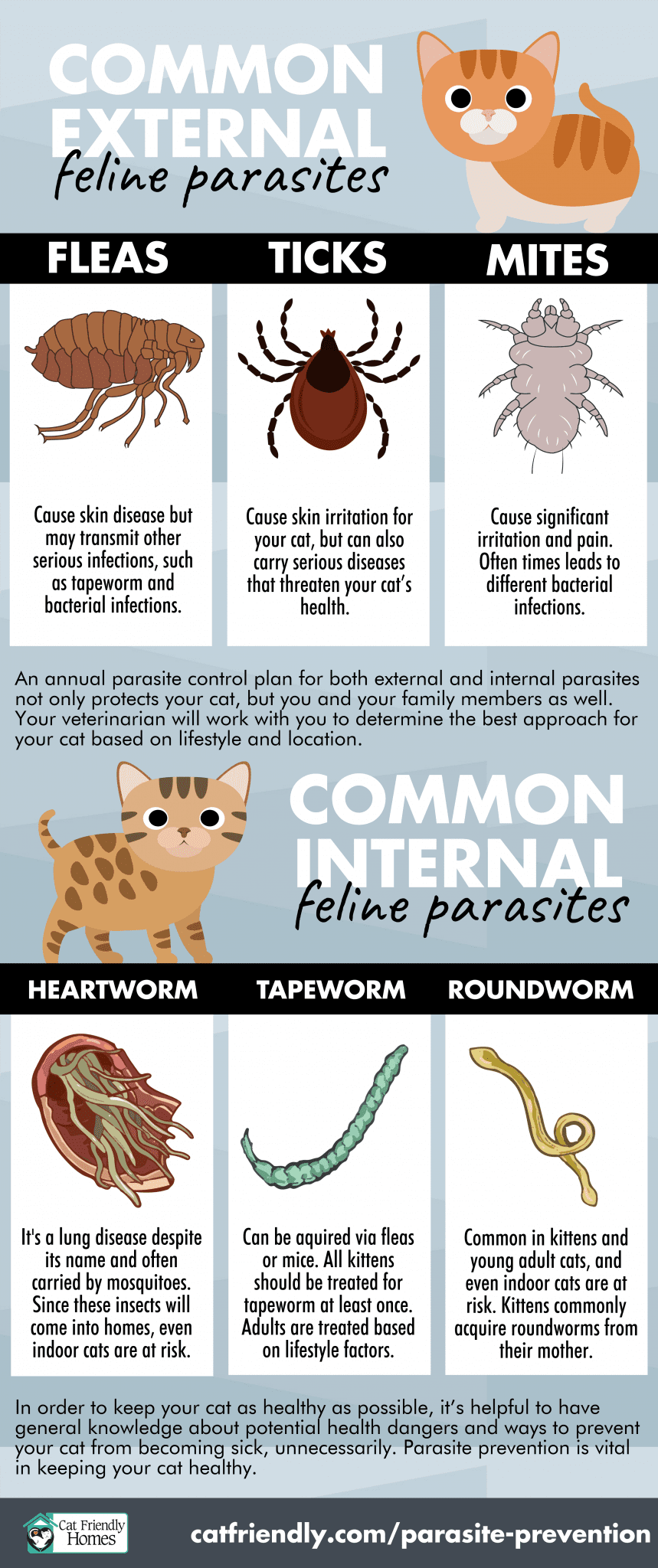
External parasites in cats

Fleas in cats
These parasites live not only on the body of the animal, but also on the street and indoors. Therefore, a cat can become infected with them without even leaving the house. It is important to remember that fleas can carry diseases and infect a cat with worms.
To eliminate this problem, the owner should regularly treat the cat’s coat and skin with special flea products. This is of particular importance in the spring and summer. The most effective are flea shampoos and sprays and insecticidal drops on the withers. But, since these drugs have contraindications, it is necessary to carefully study the instructions, and even better, consult a veterinarian. As a preventive measure, flea collars are good.
Ticks in cats
Ticks live in tall grass and most often cling to the delicate skin around the neck or ears. Sometimes they are carriers of dangerous diseases. Therefore, the cat should be regularly checked for the presence of these skin parasites.
Most flea medications provide good protection against ticks, but this does not eliminate the need for an examination. If the parasite is still attached, you should not crush it or pull it out with a normal hand movement, since the head of the tick will still remain under the skin and can cause complications if the tick was the carrier of the infection.
It is necessary to arm yourself with tweezers, gloves and some kind of oil. The affected area of the skin is cleansed and treated with oil. After some time, the tick will begin to experience a lack of oxygen and loosen its grip. After that, you need to take it with tweezers as close to the skin as possible, gently swing it and gently pull it out with a pulling movement. The remaining oil should be removed, and the skin should be treated with an antiseptic.
It is worth considering that the removal of the parasite does not guarantee that the cat is not infected with anything. Therefore, it is worth conducting a veterinary check of the animal and observing the cat’s well-being: if you notice lethargy and lack of appetite, it is unacceptable to postpone a visit to the doctor.
Ear mites in cats
This parasite cannot be seen with the eyes, so the easiest way to determine its presence is that the cat often rubs its ears on various surfaces or scratches them too often. More significant signs are dark discharge from the ears with a bad smell. In this case, you need to consult a doctor who will make an accurate diagnosis and prescribe treatment.
The article is not a call to action!
For a more detailed study of the problem, we recommend contacting a specialist.
Ask the vet
8 2017 June
Updated: November 20, 2019





